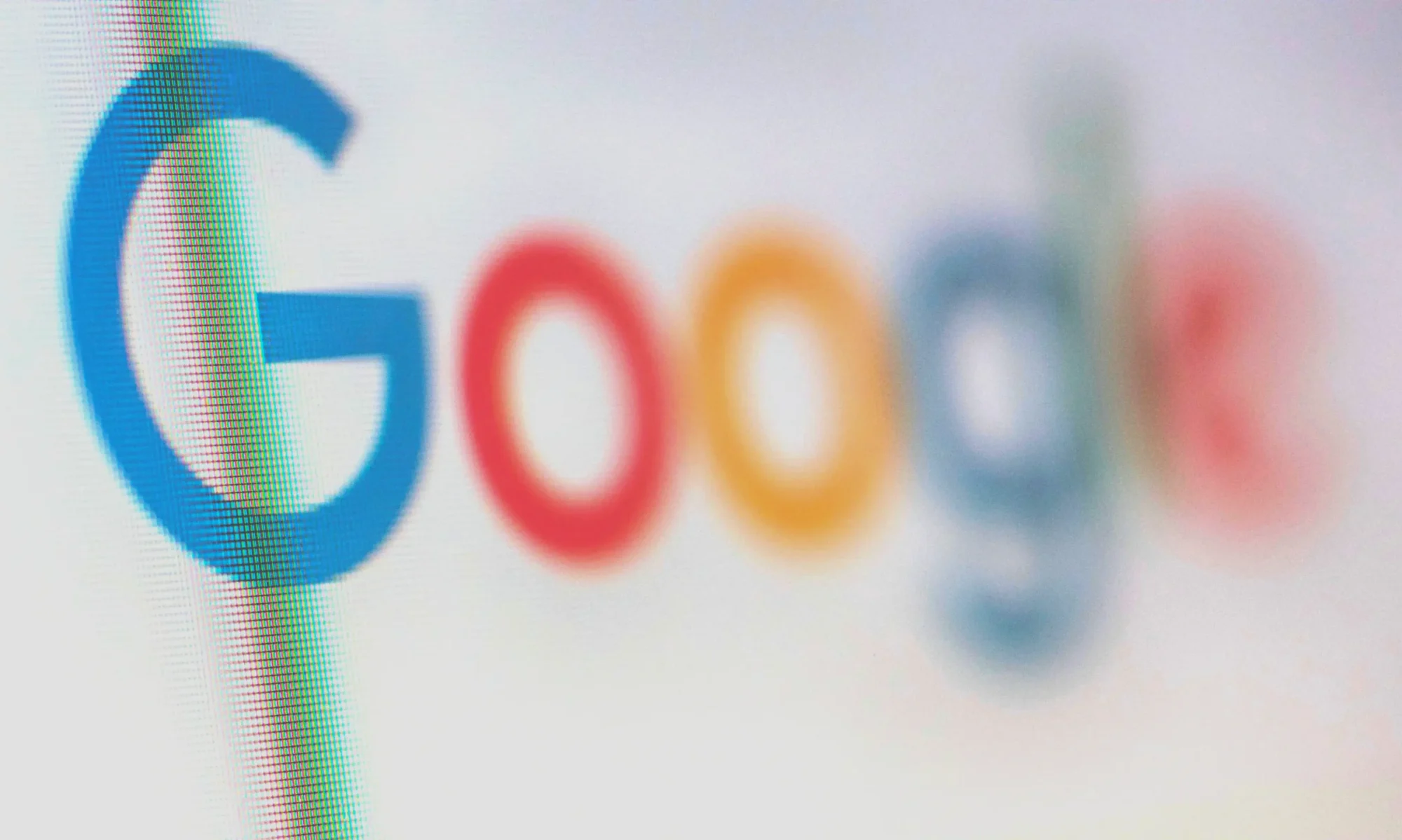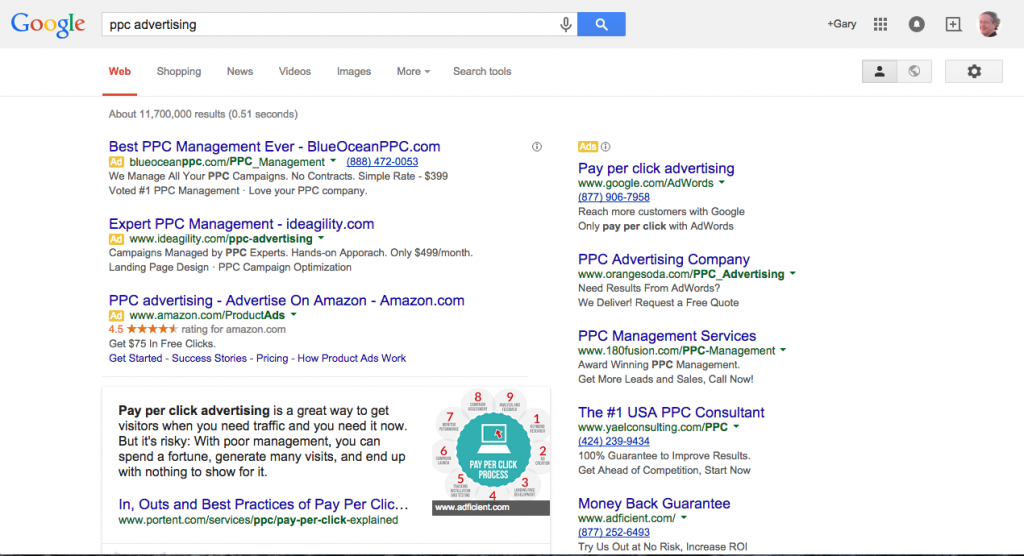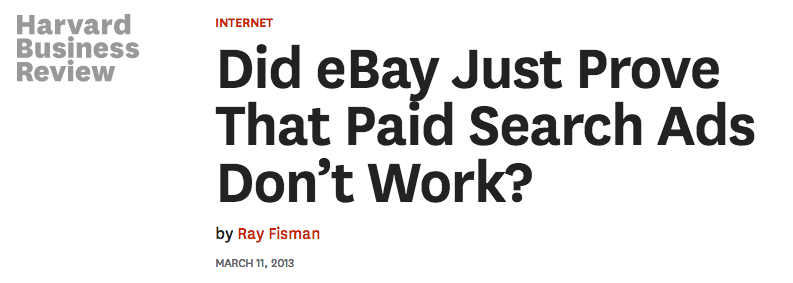The short answer is “Lot’s of people”. Online advertising has overwhelmingly proven its value to businesses of all types. Yet it seems as though most clients that are new to pay per click (PPC) like Google’s AdWords say that they don’t click on ads.
Why is this?
It could be that people don’t know how they are clicking on an ad in search results. This article cites research that in early 2014 36% of people didn’t know they were clicking on an ad when it appeared in a Google search return.
Perhaps this (or a court case in the EU) prompted AdWords to begin including little yellow “Ad” icons in their search results:
It’s still a little confusing in the right hand column, isn’t it?
The above screen grab is of the entire screen on a laptop but doesn’t show a single organic result for the search term “ppc advertising”. From a marketing standpoint that confusion makes PPC more attractive not less since it’s been conclusively proved that people more frequently click on search returns toward the top of the first page.
There may be a very big difference in the effectiveness of PPC when a buyer is ready to purchase something. Marketing firm Wordstream claimed in 2012 “Clicks on paid search listings beat out organic clicks by nearly a 2:1 margin for keywords with high commercial intent in the US. In other words, 64.6% of people click on Google Ads when they are looking to buy an item online!” But how many knew or cared that they were clicking on an ad? The same article also states that organic results still get many more clicks overall than PPC.
Search Engine Watch cited numbers in the dominance of organic over PPC results (2012)
Danny Goodwin also pointed out that there were large differences between branded and non-branded searches.
This difference led the Harvard Business Review to write a very dramatic headline question:
The answer to which is, in a word, “NO”. This article shows eBay proving that they don’t benefit from paying for clicks from a search for the branded phrase “eBay” which really isn’t a surprise since a company like eBay is so well known as a brand name and appears organically right at the top of any search including its name. The article goes on to underscore the importance of non-branded PPC search phrases like “used les paul guitar” to eBay.
It’s this importance of PPC for non-branded phrases that make it so valuable for nearly any business. PPC makes it possible for any business to appear in a wide variety of non-branded searches. There are still a lot of examples of business’ ads appearing absurdly when they are irrelevant to a search. This problem is caused by improper configuration and testing of the advertising campaign. It’s really easy to goof this up but it doesn’t have to happen to you. In order to avoid this problem businesses should always use an experienced PPC firm like Search Engine Marketing Chicago, Inc.
Contact us for more information.





